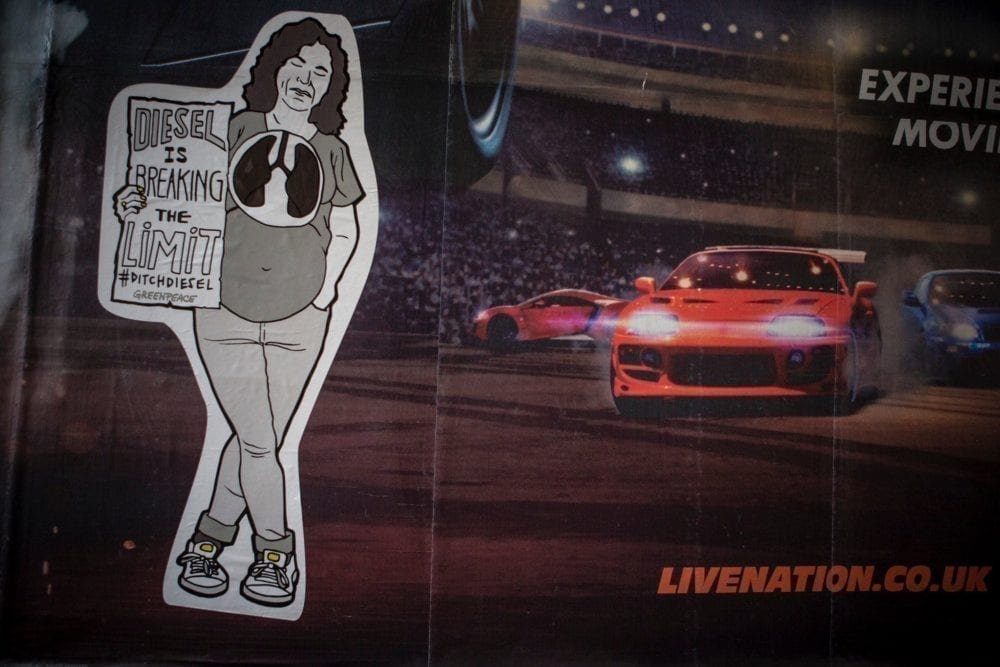The UK reached its annual air pollution limit just one month into the year, and for the eighth year in a row, at 8am on 30 January.
To mark the moment, Greenpeace creatively subverted hundreds of billboards across the UK with illustrations of people holding placards that read ‘Diesel is breaking limit’ (main image, photo Will Rose).
Emergency meeting on air quality
Under EU rules, any single location in the UK is only allowed to breach hourly limits of 200 micrograms of NO2 per cubic metre of air 18 times in a year. Yesterday morning Brixton Road reached that limit and is expected to break it again today.
The reaching of the legal limit coincided with a closed-door emergency meeting called by EU environment commissioner, Karmenu Vella, in Brussels. Environment minister Thérèse Coffey will attend.
The meeting was called to provide a ‘last opportunity’ for countries, including the UK, to show the steps being taken to redress breaches of legal air pollution limits, otherwise the Commission has stated it will make a referral to the European Court of Justice.
A poor track record
In 2016 it took eight days for the UK to violate its annual air pollution limit – last year it took just five days.
This year, it took a month for the UK to reach the limit in any single location. This could be down to the London Mayor’s work to reduce diesel pollution, by introducing a t-charge and cleaner buses on the most polluted routes, but it may also have been delayed by bad weather seen throughout January, causing pollution to dissipate more quickly.
Last week the government faced a further High Court hearing brought by ClientEarth over its persistent failure to deal with air pollution.
While being most acute in London, illegal levels of air pollution are a problem across the UK. 37 of the UK’s 43 air quality zones don’t meet EU nitrogen dioxide limits, all of which should have fallen within safe limits by 2010.
The impact of air pollution is particularly acute for children. High exposure to polluted air at a young age can cause chronic health problems that last a lifetime, with research showing negative effects for lung function, respiratory issues like asthma and even stunted lung growth.
 Play Video about This Rock Might Just Save The World
Play Video about This Rock Might Just Save The World Play Video about Play 2 hours of rock
Play Video about Play 2 hours of rock Play Video about Play 2 hours of brook
Play Video about Play 2 hours of brook Play Video about Play 2 hours of sheep
Play Video about Play 2 hours of sheep











































